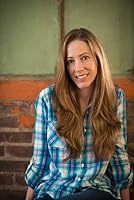Welcome to my friend Gail Pallotta, who shares this article with the sad facts of teen suicide.
Gail has offered to give away a review copy of Stopped Cold and her book that focuses on Lyme Disease, Barely Above Water. Comment below to entered in the drawing which will take place on Thursday at 8 PM Central with the winners announced on Friday June 7.
Gail has offered to give away a review copy of Stopped Cold and her book that focuses on Lyme Disease, Barely Above Water. Comment below to entered in the drawing which will take place on Thursday at 8 PM Central with the winners announced on Friday June 7.
According to The Parent Resource, The Jason Foundation, suicide is the second leading cause of death for ages ten to twenty-four. “Each day in our nation, there are an average of over 3, 041 attempts by young people grades nine through twelve.”
The CDC says “suicide among teens and young adults has nearly tripled since the 1940s.”
According to the Westminster Catechism, which I studied in the 1940s and 50s, man’s chief end is “to glorify God and enjoy him forever.”
In “A Young Athlete’s World of Pain and Where It Led,” published on June 22, 2016, in “The New York Times,” Tim Rohan tells the story of a young football player suffering from concussions. He didn’t mention it to anyone because he thought it wasn’t the manly thing to do. He ended up killing himself.
I’ve had the misfortune of knowing young people whose inability to cope with being less than number one resulted in devastating results. They range from youngsters who had difficulty coping because they didn’t come in first in a race or receive all A’s to young people who attempted or committed suicide. The drive seemed to originate from different sources, parents, siblings, peers or within.
I wanted them to know they didn’t have to be number one for God to love them. He’d given each of them a gift or gifts to use for him. The desire rattled around in my head for years and finally became the theme for Stopped Cold.
I’m a fan of healthy competition. It pushes us to do our best, and we often achieve success beyond our goals, or not, but when the game or contest ends, win or lose, we’re still a child of God. Winning or losing doesn’t define our self-worth.
About Stopped Cold
Things aren't what they seem in peaceful Mistville, North Carolina.
Margaret McWhorter enjoys a laid-back Freshman year in high school swimming and hanging out with friends—until the day her brother, Sean, suffers a stroke from taking steroids. Now he's lying unconscious in a hospital.
Anger sets a fire for retribution inside her, and Margaret vows to make the criminals pay. Even the cop on the case can't stop her from investigating. Looking for justice, she convinces two friends, Jimmy and Emily to join her in a quest that takes them through a twisted, drug-filled sub-culture they discover deep in the woods behind the school. Time and again they walk a treacherous path, and come face-to-face with danger.
All the while Margaret really wants to cure Sean, heal the hate inside, and open her heart to love.
Meriwether, the high school in Stopped Cold, has its own twitter site. Margaret would love to have you follow it at Meriwether Christian @ MeriwetherCS
Buy the book:
About the Author:
 Gail Pallotta’s a wife, mom, swimmer and bargain shopper who loves God, beach sunsets and getting together with friends and family. She’s a former regional writer of the year for American Christian Writers Association, a Grace Awards Finalist for an earlier edition of Stopped Cold and a Reader’s Favorite 2017 Book Award winner for Barely Above Water, a contemporary romance that includes a heroine struggling with Lyme disease. Learn more about Gail and her books on her website.
Gail Pallotta’s a wife, mom, swimmer and bargain shopper who loves God, beach sunsets and getting together with friends and family. She’s a former regional writer of the year for American Christian Writers Association, a Grace Awards Finalist for an earlier edition of Stopped Cold and a Reader’s Favorite 2017 Book Award winner for Barely Above Water, a contemporary romance that includes a heroine struggling with Lyme disease. Learn more about Gail and her books on her website.
![Uncharted Destiny (The Uncharted Series Book 7) by [Keith, Keely Brooke]](https://images-na.ssl-images-amazon.com/images/I/514V7mdj5fL.jpg)



.webp)




